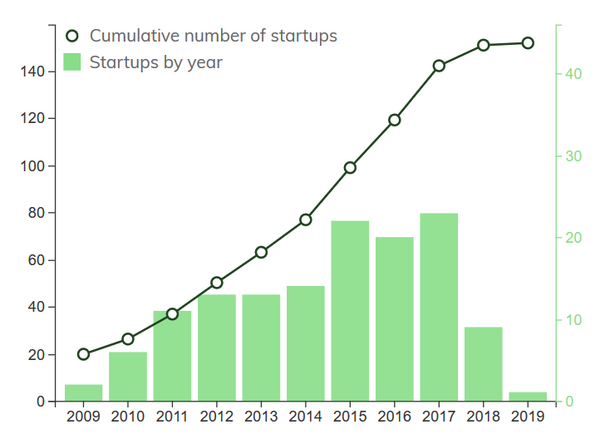[Interview] Demystifying the Role of Artificial Intelligence in The Life Sciences
In this interview, Rasim Shah, Director at OKRA Technologies provided a glimpse into how the company applies state of the art machine learning technologies to solve real world challanges in the life sciences. Rasim also agreed to answer several questions about a more general context of AI in pharma, its current challanges and future perspective, as well as describe the current efforts the European Union puts into supporting the AI ecosystem in the region.
Rasim Shah, Director at OKRA Technologies:
OKRA Technologies is a leading European artificial intelligence (AI) company for life sciences. Our goal is to empower life science executives at their desks or whilst on the move, with explainable AI outputs. OKRA’s solutions deliver suggestions, predictions and explanations to enable life sciences executives and operational teams to drive the right drug to the right patient with humanised and understandable AI outputs. The OKRA engine learns from real-world data, structured, unstructured, clinical, commercial and scientific literature to drive the right insight to the different teams in life sciences. Our deep expertise in AI, combined with in-depth medical and product knowledge from life science leaders, has allowed us to develop and co-create products that can transform the way life sciences approach traditional industry challenges. We focus on operationalising AI in an ethical way by placing users of these systems at the centre.
Our Founder and CEO Dr Loubna Bouarfa is a machine-learning scientist turned entrepreneur. Loubna is currently a member of the European Union High-Level Expert Group on artificial intelligence, where she develops recommendations on ethical, legal and societal issues related to AI and AI-related policies, including health, safety and freedom of the wider society. Loubna was the recipient of the prestigious CEO of the Year award 2019 at the Cambridge Independent Science and Technology Awards. She was named MIT Technology Review Top Innovator Under 35, a Forbes 50 Top Women In Tech, and she won the prize for Best Female-Led Startup at the StartUp Europe Awards.

OKRA Technologies was founded in 2016. In March 2018, OKRA raised £3m in a Series A funding round. In 2018 we opened a new office in Leiden, the Netherlands. In 2019 we became a technology partner for Veeva - a leader in cloud-based solutions for life sciences.
More info about key milestones here: https://okra.ai/about/
The application of AI technologies in healthcare is believed by many pharmaceutical leaders as a new paradigm-shifting trend. Others are more skeptical, regarding the value AI can realistically bring to the pharmaceutical companies. What is your critical opinion on the current state of things, and the near-term future growth prospects of AI in the life sciences?
At OKRA, we believe that artificial intelligence has the potential to profoundly transform life sciences. AI can have a significant impact along every step of the product life cycle, from drug discovery to market access, sales, and finally patient diagnosis and treatment. AI systems provide a new data-driven dimension. With this information, users of AI systems have a complete picture of all what is affecting the outcome and can be empowered to make decisions and take action.
Skepticism is founded on the lack of trust and transparency of AI systems. We need to design trustworthy AI systems, ensuring that humans remain in control by empowering them with outputs that help them make decisions. At OKRA we deliver explainable insights through our Explainability Engine. Only when users understand the outputs of AI systems can they make use of them, while remaining in control.
Pharmaceutical companies are very aware of the need of AI, but current adoption is still lower than in other industries. In the near term we do see this changing. This relies on more use cases being shared and the positive impact of AI in life sciences becoming widely understood. The deployment of AI technology is becoming a core part of most pharmaceutical companies, and 2020 will hopefully see more adoption.
In which areas do you think AI will have the greatest impact in the life sciences? Can you list some of the most promising areas where we can expect major advances thanks to the application of machine learning models, and why?
We believe that AI can impact many areas within life sciences. At OKRA we have co-created a suite of products together with our top pharma clients to address different needs. Our AI solutions are categorised into either commercial or medical solutions that ultimately enable teams to align strategy and execution and contribute to the best possible patient outcomes and support the process of bringing the right drug to the right patient at speed.
Key areas where OKRA is driving value using AI:
- Sales force effectiveness
- Commercial excellence
- Digital engagement
- Field medical analytics
- Clinical trial analytics
- Pricing and Reimbursement
We believe that major advances will be seen around explainable AI. For OKRA, explainability is a fundamental output of our analytics. The goal should be to support teams across the business to take decisions with all the evidence and information they need, whilst also providing the reasons behind recommendations made by AI systems.
What kind of “pain” of the life science professionals your company’s AI-driven products help eliminate? How is your value proposition in the data analytics special?
Today life science executives are bombarded with data and analytics. Sometimes individuals can be accessing 12 different dashboards before making a decision. Our AI system puts the user at the centre and combines the data into one place. AI for us is not a project, gathering and analysing data is not the goal; we set our aims on delivering meaningful outcomes and operationalising AI for the people. At OKRA, we believe that in order to truly empower life science executives, AI outputs need to be explainable. We humanise our AI insights, so that users can take action.
What do you think is the current position of the European Union in the global market of AI-related technologies in the life sciences sector?
The European Union is making a big effort to implement AI in healthcare. The Commission is encouraging technological research and innovation and has increased its annual investments in AI by 70% under the program Horizon 2020. Over the next decade, the European goal is to reach an investment of EUR 20 billion per year in trustworthy AI.
Loubna Bouarfa’s work at the EU High-Level Expert Group supports the implementation of the European Strategy on Artificial Intelligence. Europe is building the trust of its citizens by ensuring the development of human-centric AI. The AI HLEG published a set of ethics guidelines for trustworthy AI in April 2019 which is the first of many initiatives to be lead by Europe.
Today in Europe we see life expectancy increasing, and consequently, chronic diseases are becoming highly prevalent. As a result, European citizens are calling for more protection and prevention, and therefore treatments should be more effective and people-centered. Artificial intelligence can make this shift towards preventive and individualized medicine a reality, using a holistic, data-driven approach.
Topics: AI & Digital


